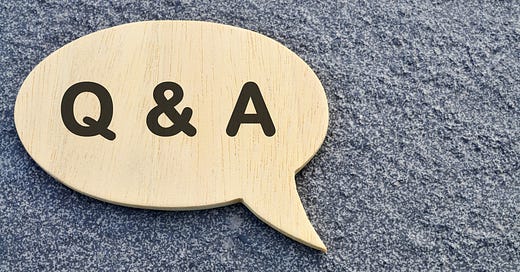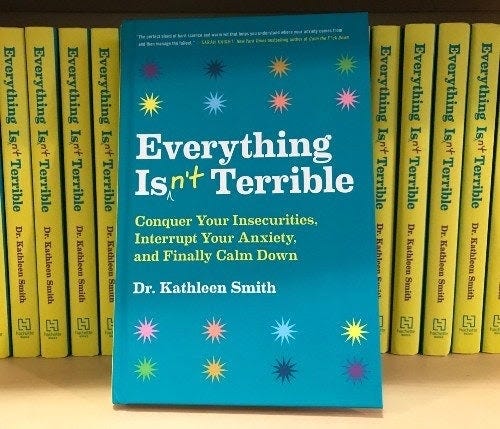How is it May already? What is time? Don’t forget you can preorder my upcoming book, True to You, and get the free companion workbook and sneak peak chapter here. Thank you, thank you, thank you! - K
Q: In our leadership positions, how are we to be in relationship with our critics? I have noticed that there is a tendency to label a critic as “a bother” or describe the critic as one who is sabotaging the leader’s work/agenda. Because of that, the critic is not taken seriously. Other leaders in the institution also start to see the critic as someone not to pay attention to. What gets lost with this relationship pattern?
A: I love this question. As always, I think questions are more helpful than answers here. Here are some questions I hope are helpful for thinking about criticism and leadership.
What role did criticism play in my family of origin? How well was feedback received? What was the level of openness to the thinking of individuals?
What is the history of how the organization has responded to feedback about its functioning and the functioning of its leaders?
How do I want to represent myself when I see a leader or group dismiss criticism? When have I gotten more focused on other people’s functioning than my own?
When I want to dismiss criticism, how can I assess whether I’m simply reacting to the anxiety thrown my way or really responding to the thinking presented?
Do I give other people an opportunity to represent their thinking?
When I am critical of others, can I determine whether it’s more about managing my own anxiety than contributing to the efforts of a group?
What would be the evidence that I was (or wasn’t) sharing my thinking responsibility, and respectfully? How do I want to represent myself?
How is criticism delivered? In person-to-person contact or through a third party? Through what medium (conversation, email, etc.)? How do these decisions get made?
Am I paying attention to the triangles? Can I see who’s in an outside position, and how this might generate reactivity that leads to criticism? Can I recognize when I’m in an outside position?
How can I hear people’s thinking without becoming over-responsible for the anxiety they bring to the conversation?
When is it useful to see a person’s response to criticism as an attempt to get comfortable?
When do people criticize others in conversation because there is a level of discomfort relating to the person in front of them?
What efforts help the system develop a higher level of flexibility in response to feedback?
There are a couple of themes here. One is seeing criticism as an adaptive response for managing anxiety. Another is seeing the capacity of the system for receiving the thinking of individuals, and how that has changed over time or could change. A more open system can do this better than a closed one, hence the value of developing person-to-person relationships within that system.
Another is managing one’s self in the face of great reactivity—how do you remain open to the thinking of others without becoming over-involved in how other’s manage their distress? When do you get too focused on another leader’s functioning, instead of getting clearer about how you want to represent yourself in the relationship system?
If any readers have their own questions that help them think about criticism from a systems lens, feel free to drop them in the comments!
News from Kathleen
Bonus content is finally here! Preorder True to You, submit your info here, and download the workbook + sneak peek of a chapter.
Want a signed, personalized copy? You can preorder it from my neighborhood bookstore, East City Bookshop, the best bookshop of all the bookshops.
Want to read more of my writing? Buy my previous book, Everything Isn't Terrible or check out my newsletter archives.
Email me if you’re interested in Bowen theory coaching or want me to speak to your group or workplace. Follow me on Linkedin, Facebook, or Instagram.
Want to learn more about Bowen theory? Visit the Bowen Center’s website to learn more about their conferences and training programs.







This resonated with me today. Thank you for your questions which I found to be timely.